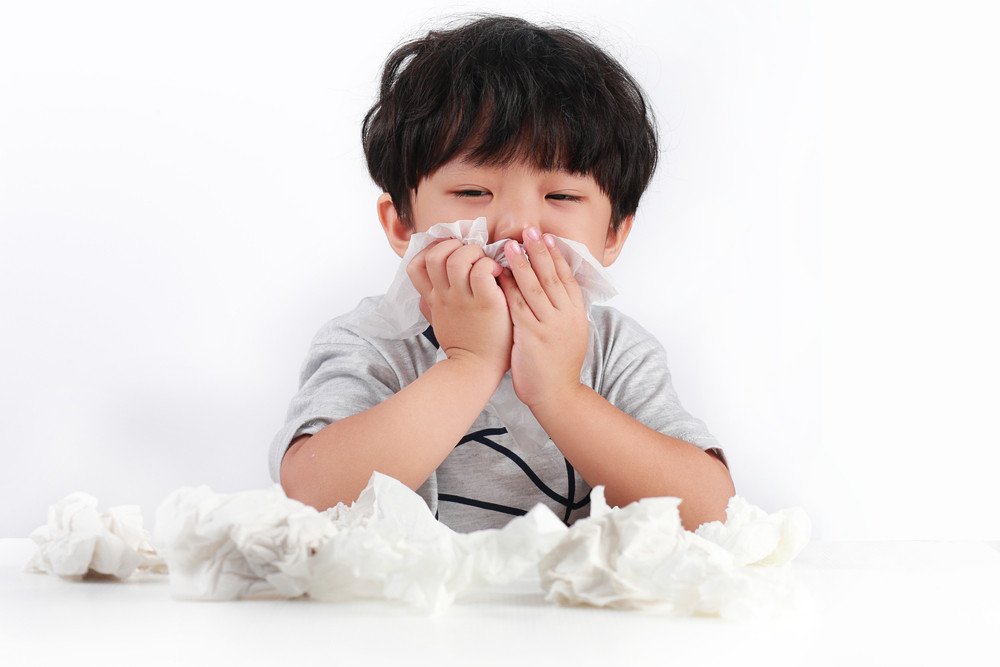Allergic Rhinitis

Relief from Allergic Rhinitis: Effective Treatments and Solutions
“During each seasonal transition, my son often experiences nose rubbing, frequent sneezing, and a runny nose when he wakes up in the morning. Nasal congestion also affects his sleep quality at night, leading to constant fatigue and low energy levels at school.” These are common issues that trouble many parents. If left uncontrolled, allergic rhinitis can escalate to sinusitis or otitis media and even impact the senses of smell and taste. It is crucial for parents not to overlook these concerns and seek appropriate management.
Causes and symptoms of allergic rhinitis
Allergic rhinitis, or nasal allergy, is a condition that affects approximately 40% of urban residents. It commonly occurs in children around the age of 2 to 3. When we come into contact with allergens, our immune system reacts by producing histamine, which causes swelling of the nasal mucosa and increased mucus production. Additionally, the immune system releases immunoglobulin E (IgE) antibodies to fight against the perceived threat. These reactions lead to symptoms such as runny nose, swollen nasal mucosa, nasal congestion, itching, and sneezing. Common allergens include substances encountered in daily life, such as food, pollen, dust, dust mites, mold, and animal dander. Changes in temperature and humidity can also trigger allergic rhinitis. The symptoms of allergic rhinitis can often be mistaken for those of a common cold. If parents are not careful and delay seeking medical attention, allergic rhinitis can potentially progress to sinusitis or otitis media.
Read more: How to choose allergy testing? A comparison of 3 testing methods suitable for different individuals.
How to reduce the occurrence of allergic rhinitis?
Avoiding allergens and maintaining a clean home environment is essential for controlling allergic rhinitis. While completely avoiding allergens may not always be possible, parents should not be discouraged. After years of clinical testing, nasal irrigation and anti-inflammatory nasal sprays were the most effective methods for controlling allergic rhinitis. Nasal irrigation helps flush away secretions and allergens from the nasal cavity and sinuses, keeping the nasal mucosa moist and reducing the frequency of allergic reactions and recurrences. Saline solution, used for nasal irrigation, does not contain medication and does not irritate the nasal mucosa, minimizing the chances of experiencing side effects. Parents can guide their children to perform nasal irrigation once in the morning and once in the evening to reduce the occurrence of allergic rhinitis.
Read more: Instructional video on nasal irrigation
Drug treatment of allergic rhinitis
When the symptoms of nasal sensitivity become severe, doctors may prescribe medications to manage the condition. Three primary types of medications are used: antihistamines, decongestants (available in oral or nasal spray form), and corticosteroid nasal sprays.
Antihistamines
Antihistamines are used to inhibit the secretion of histamine. They cause constriction of the tiny blood vessels in the nasal mucosa, reducing nasal mucus production. At the same time, they can provide relief from nasal congestion and itching.
Decongestants (oral or nasal spray)
Decongestants work by narrowing the small blood vessels, providing temporary relief from nasal congestion. However, it’s important to note that they can potentially cause an increased heart rate and elevated blood pressure. Individuals with hypertension or heart problems should exercise caution when using them. Nasal decongestant sprays are intended for short-term use only. If used for more than 5 days, they can lead to a rebound effect, where nasal secretions become even more abundant, resulting in increased nasal discharge and congestion. Prolonged use of decongestants can lead to dependence and drug resistance, and there is a higher risk of developing “medication-induced rhinitis”, which is more severe and more challenging to treat compared to allergic rhinitis.
Steroid nasal sprays
Steroid nasal sprays work by suppressing the immune response, causing blood vessels to constrict, and have anti-inflammatory and anti-swelling effects. Concerns about potential long-term side effects of steroid use often arise among parents. However, it's important to note that when steroids are used as a nasal spray, they are primarily absorbed by the nasal mucosa, and the amount of medication absorbed is only 5-10% of what would be taken orally. As a result, the risk of side effects is minimal, and these sprays can be safely used for several months to years.
It's crucial to understand that the primary purpose of steroid nasal sprays is to reduce inflammation and swelling rather than directly addressing nasal discharge or congestion. Therefore, it's important not to assume they are ineffective and discontinue their use or increase the dosage arbitrarily. Always adhere to the instructions provided by your doctor.
Read more: Steroids used appropriately bring positive effects
Desensitization therapy
Antihistamines and decongestant medications provide temporary relief and address the symptoms of nasal allergies, but they do not treat the underlying cause. The most effective approach to controlling nasal allergies is consistent nasal irrigation and following the doctor's instructions for using steroid nasal sprays. However, desensitisation therapy may be considered if a patient's nasal allergies persist despite these measures. In desensitization therapy, the patient undergoes daily sublingual administration of small amounts of a solution containing allergenic substances. The treatment typically spans several years, allowing the patient's body to gradually build antibodies to counteract the allergens. Over time, this helps the patient develop immunity and reduce sensitivity to the allergens.